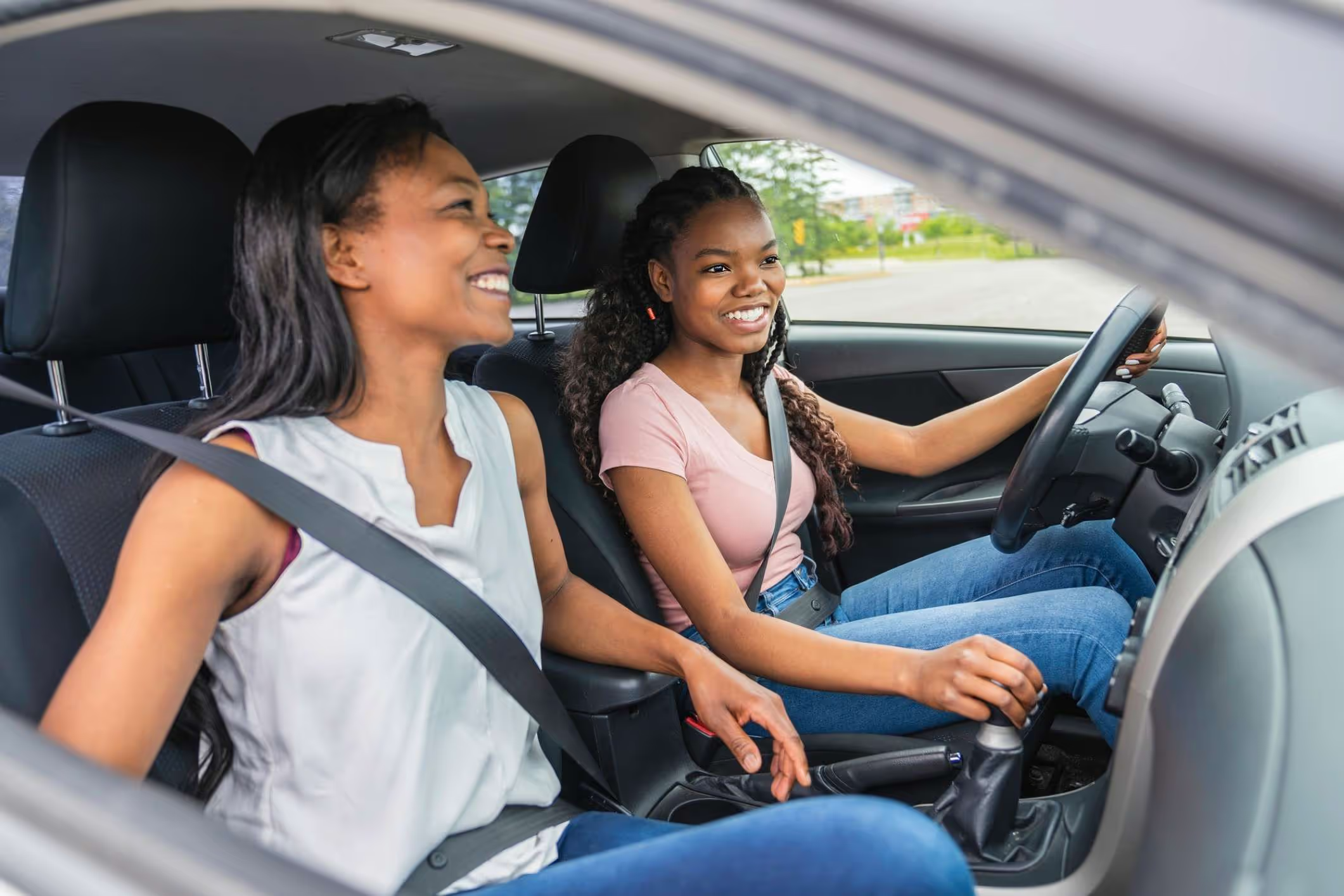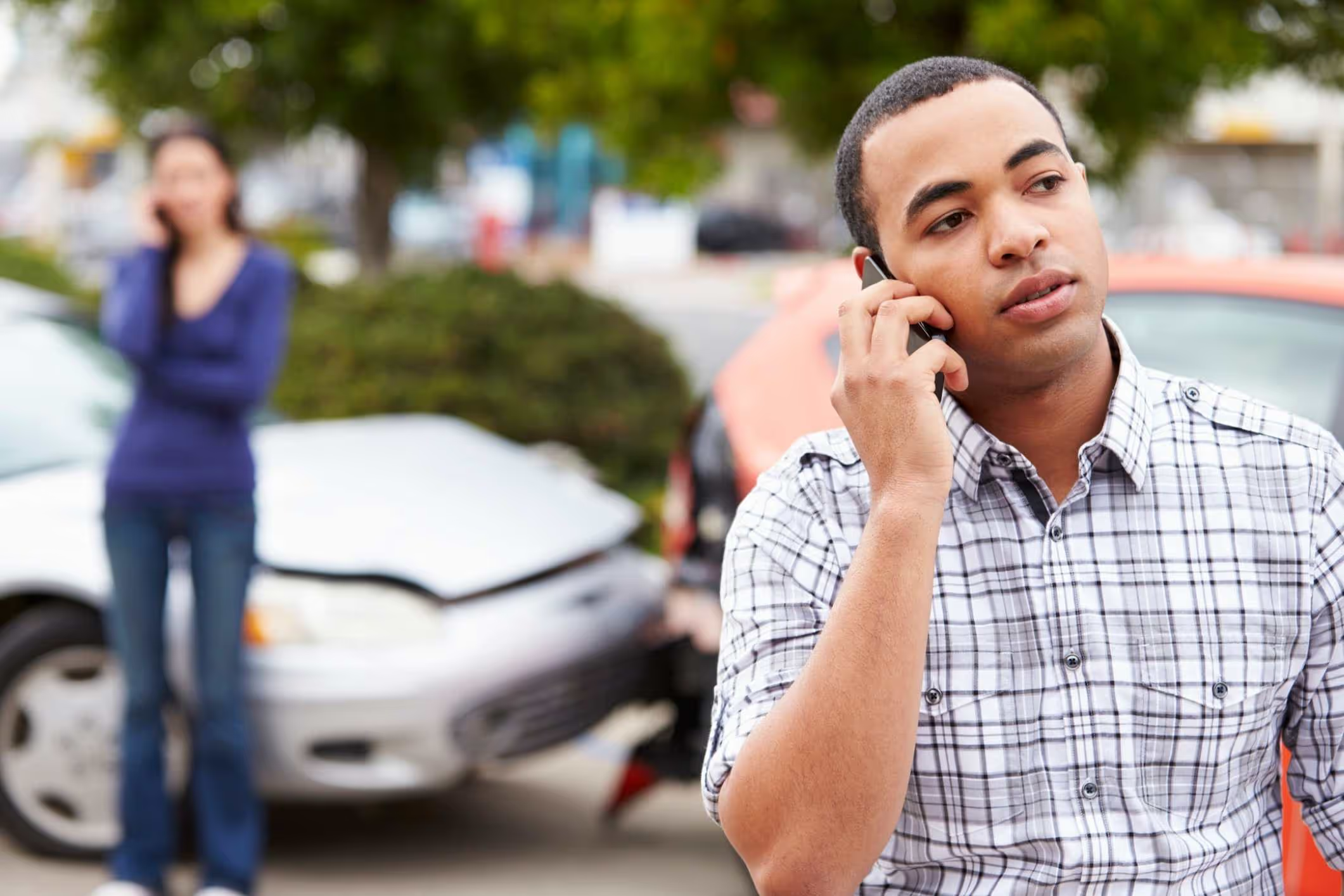There’s nothing quite like the excitement on a teenager’s face when they slide into the driver’s seat for the first time. For parents, that same moment often sparks a mix of pride and worry. You want your child to experience freedom, but you also want them to be safe on the road.
Florida sets rules for young drivers aimed at reducing risks and protecting everyone. One of the most misunderstood rules is the driving curfew in Florida for minors. Knowing these limits can help parents guide their kids, prevent violations, and reduce the chance of late-night accidents.
Here’s what every parent with a teen driver in Florida needs to know.
Have questions about teen driving laws in Florida? If your child is just starting to drive or has already been involved in a late-night crash, Osborne, Francis & Pettis can explain your rights and responsibilities as a parent.
Call (561) 293-2600 or contact us online to get started.
What Is the Florida Driving Curfew?
Florida does not set a universal curfew for all drivers, but it does restrict when teenagers can be on the road through the state’s Graduated Driver License (GDL) program. These time-based rules adjust as teens gain more experience behind the wheel.
15-Year-Olds (Learner’s Permit)
For the first three months, the driving curfew in Florida is limited to daylight hours. After that period, teens may drive until 10 p.m., but they must always have a licensed driver who is at least 21 seated in the front passenger seat. The permit period is designed to provide practice with an adult present before teens start driving independently.
16-Year-Olds (Driver’s License)
Sixteen-year-olds with a license cannot drive between 11 p.m. and 6 a.m. unless they are traveling to or from work or accompanied by a licensed adult age 21 or older. The restriction is strict, and violations can result in fines or delays in obtaining an unrestricted license. Parents should be mindful of the driving curfew for 16-year-olds in Florida when scheduling rides or approving late-night outings.
17-Year-Olds (Driver’s License)
Florida driving restrictions for 17-year-olds still include a curfew, but it shifts to 1 a.m. through 5 a.m., with the same exceptions for work or supervision. This adjustment provides older teens with more evening flexibility but still restricts them from the hours when crashes are most likely. Driving during the restricted period without an exception can lead to penalties and higher insurance costs.
18 and Older
Once a driver turns 18 and holds a full Class E license, the curfew restrictions end. From then on, they have the same nighttime driving rights as adults. Parents should still encourage caution, since late-night driving remains one of the highest-risk situations for young drivers.
The reasoning behind the Florida driving curfew becomes clear when you look at the numbers. The “100 Deadliest Days” campaign reports that the fatal crash rate at night among teen drivers in Florida (ages 16–19) is about three times higher than for adults ages 30–59. By limiting when young drivers can be on the road, the law reduces exposure to the hours when serious crashes are most likely to happen.
Penalties Teens Face for Violating Florida’s Driving Curfew
Breaking curfew is not treated lightly in Florida. Penalties depend on the license type and whether this is a first violation or part of a pattern. For parents, understanding how the state responds is helpful in setting clear expectations at home.
Learner’s Permit Violations
- Suspension of the permit for up to six months;
- Points added to the driving record, which can affect insurance rates; and
- Mandatory traffic school and payment of fines.
Consider a 15-year-old who drives home at 11:30 p.m. without a supervising adult. Getting caught in that situation could mean losing the permit for months, completing traffic school, and starting a driving record with points before they even qualify for a license.
Restricted Class E License Violations
- Fines and traffic school for curfew violations;
- Suspension or revocation of the license by the Florida Department of Highway Safety and Motor Vehicles (FLHSMV); and
- Steeper fines and longer suspensions for repeat violations.
For example, a 16-year-old who drives at midnight without a licensed adult present could be ticketed and have their license suspended for a period of time. The penalty can also include fines and required courses that delay progress toward full driving privileges.
Factors That Influence Penalties
- A crash during curfew hours can lead to suspension and added liability;
- Prior traffic violations increase the severity of the penalty; and
- In some counties, repeated violations may result in fines for parents as well.
Take, for instance, a 17-year-old who collides with another car at 2 a.m. during restricted hours. That teen could end up with a suspended license and higher insurance rates, and parents may also be held financially responsible under Florida law.
Need Guidance After a Teen Driving Violation?
Florida driving curfew violations and late-night crashes can lead to fines, suspensions, and liability for parents. If your child was cited for driving after curfew or involved in a late-night accident, our attorneys can explain your options and protect your interests.
Contact Osborne, Francis & Pettis at (561) 293-2600 today to schedule a free consultation.
Other Florida Rules Every Teen Driver Must Follow
Curfew rules are only one piece of Florida’s Graduated Driver Licensing (GDL) program. Teens must also meet requirements tied to permits, passengers, and cell phone use before they gain full privileges.
With a learner’s permit at 15, the rules are strict:
- As of July 1, 2025, teens must complete the six-hour Driver Education Traffic Safety (DETS) course before applying for a permit. The older TLSAE program no longer qualifies for minors unless it was finished before July 31, 2025.
- A licensed driver age 21 or older must ride in the passenger seat at all times.
- The teen must log 50 supervised hours, including 10 at night.
- The permit must be held for 12 months without any moving violations.
- Parental consent is required, and signing off early or overlooking a ticket can result in a delay of the license application.
Once a teen moves to a restricted license at 16 or 17, new limits apply:
- Passenger restrictions prevent a 16-year-old from carrying friends under 21 for the first three months and a 17-year-old from doing so for the first month.
- Cell phones are banned for all drivers under 18, even in hands-free mode.
These restrictions are designed to reduce distractions during the first months of independent driving. For example, a 16-year-old who drives classmates to a game before the three-month mark could be stopped and cited.
To qualify for a full license, teens must:
- Complete the DETS course (or TLSAE if it was finished before July 31, 2025).
- Have parental consent if under 18.
- Resolve any suspensions before moving up.
Turning 18 does not erase a suspended or restricted license. A teenager must complete the suspension period before regaining full driving privileges.
Steps to Take if Your Teen Gets in an Accident
A car accident is scary for any driver, but it can be overwhelming for a teenager who has never dealt with one before.
What your teen should do right away:
- Call 911 if anyone is hurt.
- If the car can be moved safely, pull over and turn on the hazard lights.
- Exchange names, license numbers, insurance, and take photos of the scene.
- Report the crash to the police if there are injuries or more than $500 in property damage.
After the scene is secure, medical care should be the next priority. Some injuries may not appear until hours or days later. Florida’s Personal Injury Protection (PIP) law requires treatment within 14 days of the crash for coverage to apply. Even if your teen says they feel fine, seeing a doctor protects both their health and any claim.
Parents also carry responsibilities after an accident. The accident must be reported to your insurance company as soon as possible. It is also important to avoid any admission of fault until official reports are complete.
Are Parents Liable if Their Teen Causes a Crash?
In Florida, yes. When a parent signs a child’s driver’s license application, that signature creates a binding agreement under Florida law. If a minor causes a crash, the parent can be held accountable for the damages.
The law lays out two ways this responsibility can fall on parents:
License Application Liability
Under Florida Statute §322.09, the parent or guardian who signed a minor’s license application is jointly liable for any harm caused by the teen’s negligent driving. Since teenagers rarely have assets to cover damages, injured parties can pursue the parents directly.
Dangerous Instrumentality Doctrine
State law also treats a motor vehicle as a “dangerous instrumentality.” The owner of the car is responsible for damages caused by anyone driving it with permission. That means even if your teen is over 18 and drives a vehicle you own, you can still be held liable.
Was Your Teen in a Curfew-Related Crash? Call Osborne, Francis & Pettis
A crash involving a teenager after curfew hours can create stress for the whole household, from dealing with license restrictions to questions about liability. Osborne, Francis & Pettis has spent the past decade standing up for Florida families when they need strong legal support.
If your teenager was in an accident that happened outside permitted driving hours, Osborne, Francis & Pettis can explain your options, handle the legal process, and protect your rights as a parent.
Call (561) 293-2600 to speak with an attorney, or connect with us online to learn what options are available to you.
Proudly Representing Florida Residents Statewide
Boca Raton
Orlando
Lakeland
West Palm Beach

.avif)












.avif)


.svg)



